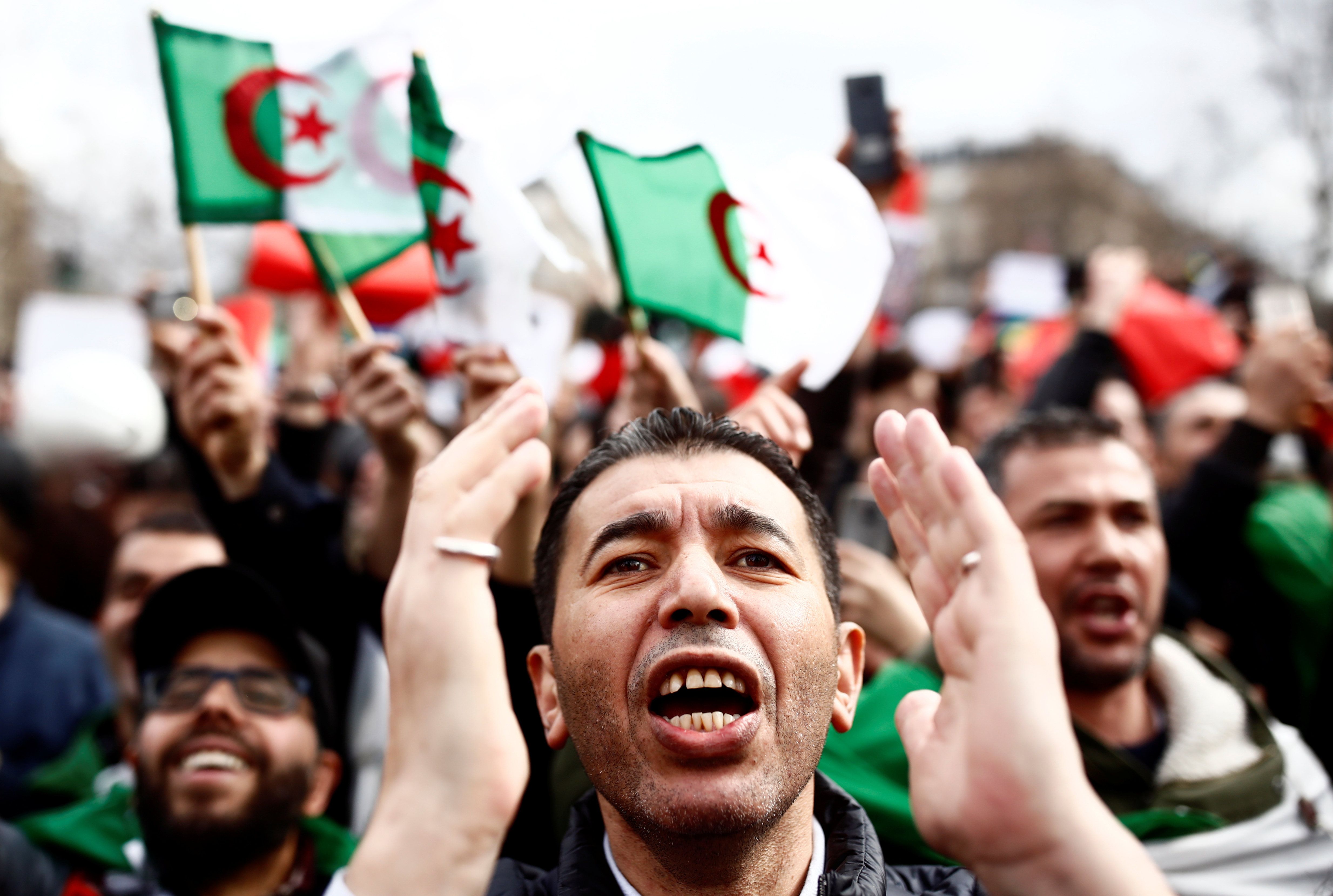March 05, 2019
The aging president of Algeria, Abdelaziz Bouteflika, has not spoken in public in years. When he is meant to attend a public ceremony or a meeting, his handlers place a framed picture of him on an easel. So when the government announced recently that the 82-year-old Mr. Bouteflika, who suffered a debilitating stroke in 2013, would seek a fifth consecutive term in office, protests erupted across the country. They have now lasted two weeks.
Bouteflika, a hero of Algeria's 1960s war of independence with France, has ruled the energy-rich country with a strong hand since a devastating civil war in the 1990s between Islamists and the government. The memory of that conflict, which killed more than 200,000 people, has underpinned a grim bargain between the people and the government ever since: Mr. Bouteflika, and his circle of family members and generals, would rule without democratic accountability or economic openness, but they would also prevent a return to the bloodletting of the past.
But for the 70 percent of Algeria's population that is under the age of 30, the devastation of the 1990s is increasingly distant. And with the state-run economy flagging, millions of young Algerians are fed up with a sclerotic and opaque system.
Despite the demonstrations, Mr. Bouteflika and his circle have stuck with their plan to wheel him out for elections this April, though they've offered a concession: after the vote – which Bouteflika is sure to win – fresh elections will be held within a year in which he will not run. As of Monday, many protesters were still out in force.
The stakes are high not only for Algeria's 41 million people and its neighbors, but also for Europe, which counts the country as a major energy exporter, a counterterrorism ally, and a partner in controlling migration flows from Africa.
The bottom line: A young population with high expectations no longer accepts an authoritarian system built around a Weekend at Bernie's presidency. The repercussions could spread far beyond Algeria.
More For You
Prime Minister Narendra Modi, with President of the European Council António Luís Santos da Costa, and President of the European Commission Ursula von der Leyen, at Hyderabad House, in New Delhi, India, on Jan. 27, 2026.
DPR PMO/ANI Photo
On Tuesday, the world’s largest single market and the world’s most populous country cinched a deal that will slash or reduce tariffs on the vast majority of the products they trade.
Most Popular
Sponsored posts
Five forces that shaped 2025
What's Good Wednesdays
What’s Good Wednesdays™, January 28, 2026
Mexican President Claudia Sheinbaum Pardo stands alongside Canadian Prime Minister Mark Carney and US President Donald Trump during the 2026 World Cup draw at the John F. Kennedy Center for the Performing Arts in Washington, D.C., on December 5, 2025.
Deccio Serrano/NurPhoto
Canadian Prime Minister Mark Carney has repeatedly tussled with US President Donald Trump, whereas Mexican President Claudia Sheinbaum has tried to placate him. The discrepancy raises questions about the best way to approach the US leader.
Fighters of the Qassam Brigades, the armed wing of the Palestinian Islamist Hamas movement, attend a rally marking the 35th anniversary of the group's foundation in Gaza City on December 14, 2022.
Photo by Majdi Fathi/NurPhoto
10,000: The number of Hamas officers that the militant group reportedly wants to incorporate into the US-backed Palestinian administration for Gaza, in the form of a police force.
Walmart is investing $350 billion in US manufacturing. Over two-thirds of the products Walmart buys are made, grown, or assembled in America, like healthy dried fruit from The Ugly Co. The sustainable fruit is sourced directly from fourth-generation farmers in Farmersville, California, and delivered to your neighborhood Walmart shelves. Discover how Walmart's investment is supporting communities and fueling jobs across the nation.
© 2025 GZERO Media. All Rights Reserved | A Eurasia Group media company.
